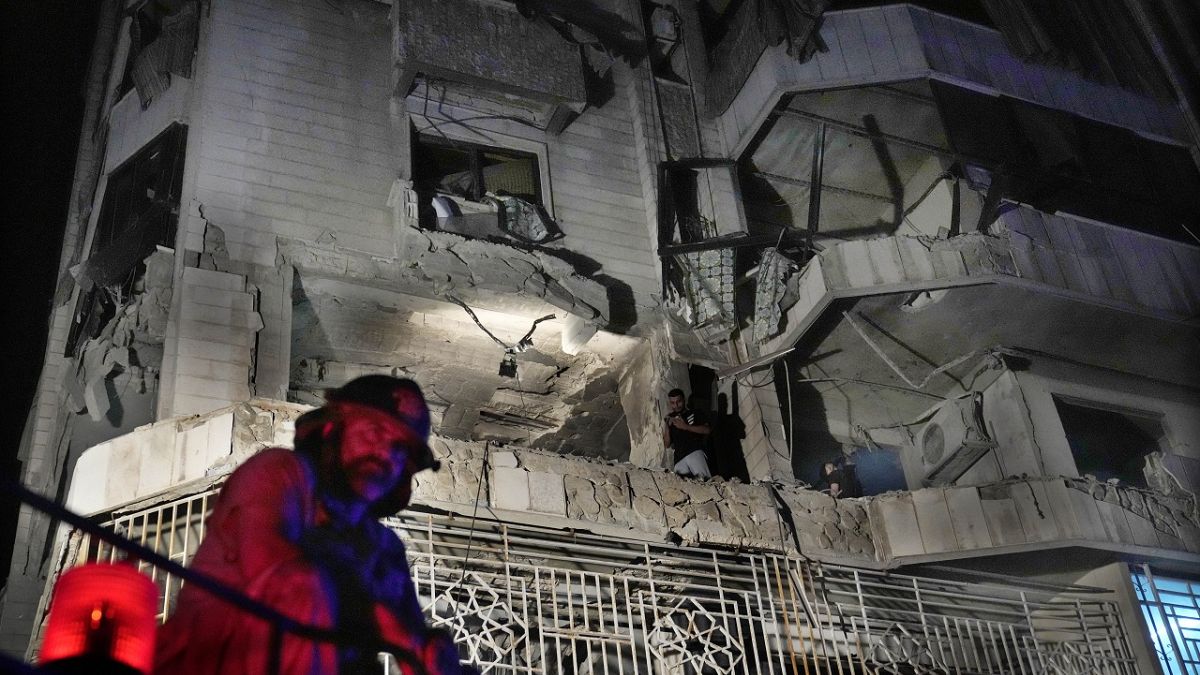The EU’s year of doing nothing
Aftermath of the European election and the looming German vote have stopped the bloc from getting much work done.
BRUSSELS — The European Union will continue to struggle to help Ukraine, allowing other global powers to deal with Russia’s full-scale invasion as a fateful U.S. election looms, in a year where it has done little and won’t be able to do much more.
First, EU institutions were paralyzed by the European election. Now, the bloc foresees another year of stalling as the EU’s bureaucrats await the results of the German election in the fall of 2025. EU diplomats and officials said they were worried Brussels has been stuck in a rut for months.
In Brussels, there’s been a distinct lack of urgency, lamented one EU diplomat, with the European institutions in bureaucratic reset mode for much of the year.
A continent-wide European election to name 720 members of the European Parliament consumed Brussels for the first half of 2024. The Brussels institutions ground to a halt as Ursula von der Leyen, president of the European Commission, campaigned for a second term and awaited approval by said Parliament (she won and was approved). Now, she’s waiting for Parliament to approve her team of 26 commissioners (one from each member country, not including von der Leyen) to lead the EU’s executive arm. Her team is set to finally make it to their desks on Dec. 1, only to be waylaid by the December holidays.
“The least we could have done is to get a new European Commission in place by the time of the U.S. elections,” said the EU diplomat, who, like others quoted in the article, was granted anonymity to speak candidly.
While Democratic nominee Kamala Harris has vowed to continue U.S. President Joe Biden’s military, political and economic support to Ukraine, it’s less certain the same can be said if Donald Trump assumes power in November. At recent campaign events, Trump has urged Ukraine to make a deal with Russia to end the invasion, and he has even threatened to stop U.S. aid to Ukraine if reelected.
While the EU is preparing a loan of some €35 billion to Ukraine, Kyiv continues to struggle to find manpower and ammunition to defend itself. Its ravaged power grid, which has been attacked multiple times by Russian drones and missiles, will need to be rebuilt before winter.
Meanwhile, the Kremlin announced a 25 percent increase in defense spending in 2025, taking it to a new post-Soviet high.
And even when the new Commission is in place, the waiting game will continue. Instead of hitting the ground running and going back to policymaking, one of the bloc’s big powers will get in the way.
German delays
The EU needs to put together its proposal for its next seven-year budget from 2028, affecting everything from agriculture to support for Ukraine. But that is likely to be postponed until after Germany’s election in fall 2025. For frugal Germany, expanding the EU budget or issuing joint debt are extremely sensitive issues in the wake of a Constitutional Court ruling that using leftover cash from a Covid fund for other purposes was not legal.
So Germany, an economic stalwart within the EU, is politically paralyzed ahead of the September 2025 election, especially when it comes to any decisions on a bigger European budget. During its campaign season, German candidates would be forced to reject the Commission’s proposal, which is likely to plead for a bigger European budget, senior EU diplomats warned. And if current polls are correct, the more fiscally conservative Christian Democratic Union (of which von der Leyen is a member) could return to power.
The EU needs unanimity to pass its budget and it would be impossible to agree on one without the bloc’s richest country on board.
“Everyone is in waiting mode and just when you think we can get going, the attention will shift to Berlin,” said one EU official, referring to the German election.

Some experts say EU policies have become increasingly politicized within Germany in domestic elections, which is why politicians want to avoid any decisions before the big vote.
“The most likely victim of that will be [budget] negotiations and any discussions on joint EU borrowing,” said Nicolai von Ondarza, a political scientist at the German Institute for International and Security Affairs.
“We cannot have any decision or new taxes or new funding until the vote” in Germany, said a second EU diplomat.
A delay would also allow the Commission to grasp the direction of the new German government’s spending proposals, which will touch upon politically sensitive questions such as issuing common debt ― which Germany has long opposed ― to fund European defense.
Former European Central Bank chief Mario Draghi recently proposed the immediate issuing of common debt to fund rapid reforms to keep up with Washington and Beijing in his report for von der Leyen, but that received a “nein” from Christian Lindner, the German finance minister.
Can anything shock the EU into action?
Even after Poland’s Pro-Europe Prime Minister Donald Tusk takes over the six-month rotating presidency of the Council of the EU from Hungary’s Russia-supporting Viktor Orbán in January, diplomats warned it might be unable to shift the needle if Berlin is in campaign mode.

“It’s hard to imagine how we can take a decision on [defense] spending before the [German] vote,” a senior EU diplomat said.
Eastern European diplomats fear Europe should be reacting instead of acting. “This time reacting could just be too late,” one of them said. But that plea is likely to fall on deaf ears.
The only thing likely to shock Europe out of its stupor is if Trump withdraws from NATO, said Mujtaba Rahman of the Eurasia Group, a consultancy.
“I don’t think that even a Trump-imposed peace plan on Ukraine would be enough to galvanize the Europeans to seek common financing for European security and defense,” he said.
“The crisis would have to be existential.”
Camille Gijs and Gregorio Sorgi contributed reporting.
What's Your Reaction?


















































